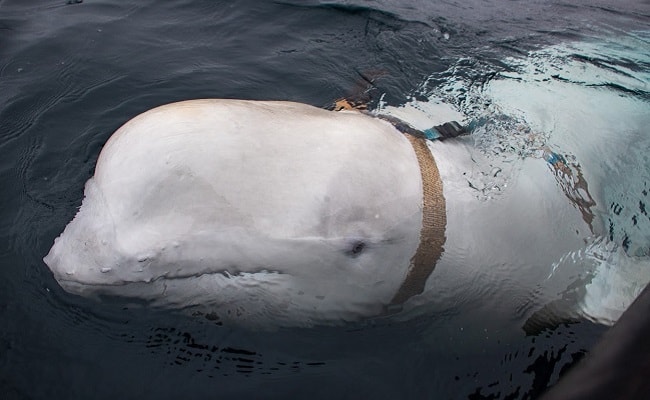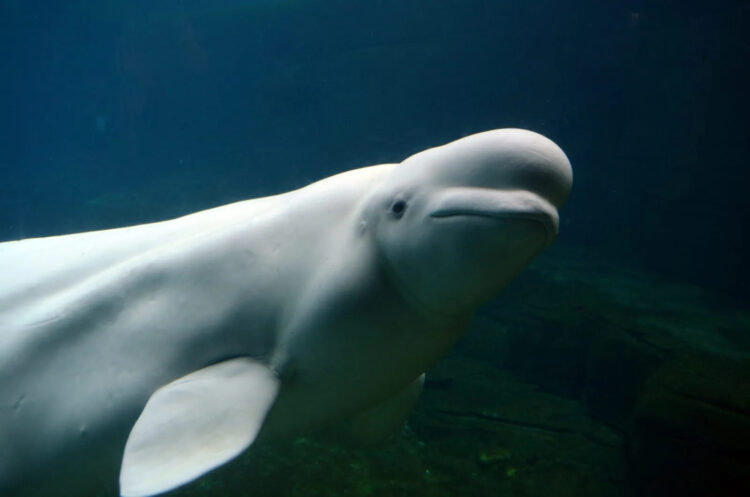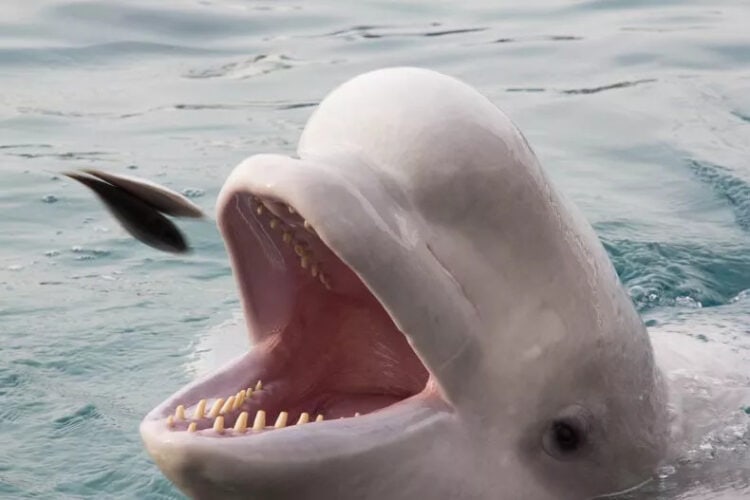There’s nothing unusual about a beluga whale sighting in the Arctic, since that’s where these cetaceans make their homes. But what’s highly unusual is spotting one of these whales wearing a harness with camera mounts.
Fishermen off the coast of Norway recently encountered a friendly beluga who rubbed up against several of their boats, pulling on the straps and ropes.

They notified the Norwegian Directorate of Fisheries, which sent a team out that was able to remove the harness from the beluga.
The harness had GoPro camera mounts on each side and was inscribed, in English, with “Equipment of St. Petersburg.”
Some Norwegian whale experts believe that the Russian Navy trainedthe beluga to be a spy.
“There is a lot of secrecy around these military projects, but a Russian researcher I have spoken to says she knows that the Russian defense has such whales in captivity for military training,” Audun Rikardsen,a professor at the Department of Arctic and Marine Biology at the Arctic University of Norway, told a local newspaper, according to USA Today.
Rikardsen said it was “most likely” that the Russian Navy was involved, since no research scientist would put a harness on a whale.
It should be noted that Russia isn’t the only country to find an alarming use for cetaceans’ amazing sonar skills—and using these animals as spies isn’t anything new, either. In the 1950s, the United States Navy was the first in the world to launch a marine animal military training program.
During the Cold War, both the U.S. and the Soviet Union trained dolphins to detect underwater explosives and submarines.The Soviet Union forced dolphins to become kamikazes who transported explosives to enemy ships.
President Vladimir Putin has apparently re-opened three Russian military training bases along the Arctic coast that had been closed since the end of the Cold War in the early 1990s, The Guardian reports.
Russia’s Murmansk Sea Biology Research Institute has also been conducting Navy-commissioned studies to determine if beluga whales can effectively guard the entrances to those training bases.
The studies are additionally looking into whether belugas can “assist deep water divers and if necessary kill any strangers who enter their territory,” according to The Guardian.
Russia’s ‘Whale Jail’
It hasn’t yet been determined where the harness-wearing beluga whale came from. As Care2 writer Alicia Graef wrote in November 2018, 87 young belugas and 10 orcas Russia captured from the wild are being held in what’s appropriately been referred to as a “whale jail.”
It has the dubious distinction of being the largest number of whales ever kept in captivity in a small, temporary enclosure.
The fate of the whale jail prisoners was to be sold to marine parks in China rather than to be trained to become spies for the Russian Navy, however.
More than 116,000 people signed a Care2 petition urging Russian authorities to investigate and shut down the whale jail. International outrage led to an investigation that found the whales had been captured using illegal permits, according to the New York Times. After a criminal case was opened, the Russian government took possession of the whales in January.
Last month, officials invited Jean-Michel Cousteau of the Ocean Futures Society and Charles Vinick, executive director of the Whale Sanctuary Project, to visit the whale jail.
These experts determined that all the whales could be successfully rehabilitated and released back to the wild, and offered to help with individualized rehabilitation plans. On April 8, the governor of Russia’s Primorsky Region signed a formal agreement to free the whales after they’re rehabilitated.
As for the beluga whale who’s now free of his harness, he has remained in the same area off the Norway coast where he was discovered. Some delighted locals are joking that the whale has “defected” from Russia. Considering what the beluga may have been trained to do, who could blame him?
This article was first published by Care2.com on 6 May 2019.






Leave a Reply